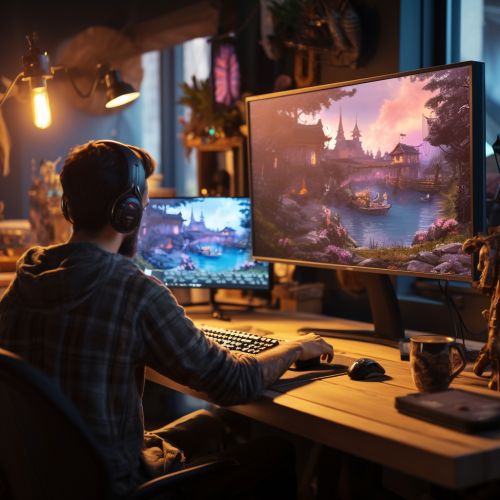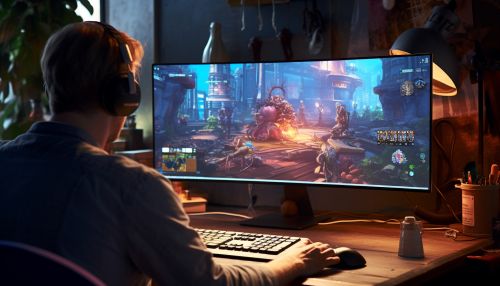Game designer
Overview
A game designer is a professional who designs gameplay, conceiving and designing the rules and structure of a game. The role of a game designer is crucial in the game development process, and a game designer often plays a pivotal role in the creation of a game, from its initial conception to its final stages of development.


Role and Responsibilities
The role of a game designer is multifaceted and involves a wide range of responsibilities. These include designing gameplay mechanics, creating game narratives, and designing game systems and economies. A game designer is also responsible for creating and maintaining design documentation, including game design documents and technical specifications.
Game designers work closely with other members of the game development team, including programmers, artists, and producers, to ensure that the game design is implemented correctly and that the game meets the desired quality standards.
Skills and Qualifications
Game designers typically have a strong background in computer science, programming, or a related field. They also often have a deep understanding of game mechanics, game theory, and player psychology. Many game designers also have experience in other areas of game development, such as art or programming, which can be beneficial in the game design process.
In addition to technical skills, game designers also need to have strong creative skills. They need to be able to come up with innovative and engaging game ideas, and they need to be able to communicate these ideas effectively to the rest of the game development team.
Game Design Process
The game design process typically begins with the game designer coming up with an initial game concept. This concept is then fleshed out into a more detailed game design document, which outlines the game's mechanics, narrative, characters, and other key elements.
Once the game design document is complete, the game designer works with the rest of the game development team to implement the game design. This involves creating prototypes of the game, testing and iterating on the game design, and refining the game until it meets the desired quality standards.
Career Path
Many game designers start their careers in other roles in the game industry, such as programmers or artists, before moving into game design. Some game designers also start their careers as game testers, which can provide valuable experience and insight into the game development process.
There are also many educational programs available that offer degrees or certificates in game design. These programs typically cover a wide range of topics, including game design theory, game mechanics, game art and animation, and game programming.
